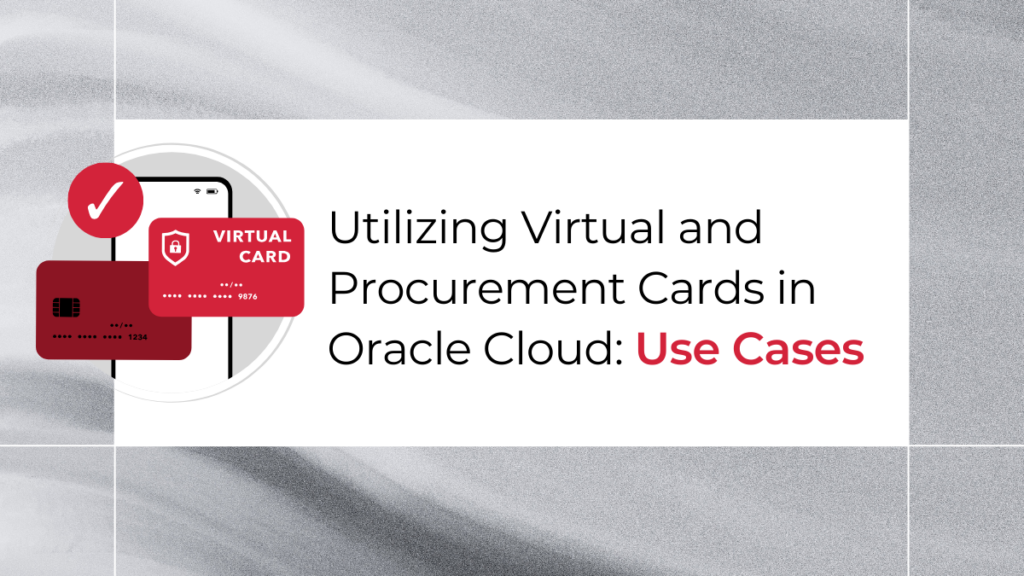
Virtual cards have revolutionized the landscape of corporate payments, offering a secure and efficient alternative to traditional payment methods. Moreover, many virtual card programs incentivize organizations with rebates and cashback opportunities, making them not only a secure choice, but also a financially advantageous one. In this blog post, we delve into the intricacies of virtual cards, exploring their benefits, implementation strategies, and real-world applications through compelling case studies. Discover how global financial institutions and corporations alike have leveraged virtual cards to streamline operations and optimize financial efficiency.
What are Virtual Cards?
Virtual credit cards are digital credit cards that function just like physical credit cards but only exist digitally. They work by providing a single use credit card number that is indirectly linked to a bank account. This is similar to a “masked” credit card number which allows organizations to limit their exposure to potential fraud by generating unique 16-digit card numbers and expiration dates for each transaction that can only be used with your preselected vendors.
With the unique number, the payee can only access the approved amount of funds in one transaction. Once authorized, the payee’s bank and the company’s bank settle the transaction. The payment posts to the company’s account, and a reconciliation file is automatically sent from the organization to Oracle Cloud ERP. If the bank is not HSCB (the Hongkong and Shanghai Banking Corporation), custom BAI2 files for this process will need to be created.
Why Use Virtual Cards?
Virtual cards provide a very secure method of payment compared to traditional payment avenues. This minimizes the risk of fraud and unauthorized use. The digital nature of virtual cards facilitates instant issuance and availability, speeding up payment processes significantly. Many virtual card programs offer attractive rebates or cashback incentives as well, providing organizations with a tangible financial benefit for their transactions. If organizations can implement a virtual card program, the cost savings can be realized almost immediately.
Case Study – Financial Institution
Elire’s global financial institution client initially launched their virtual card program operations exclusively within the United States. They successfully onboarded more than 2000 suppliers, each agreeing to accept virtual card payments.
The financial institution client chose to pursue this arrangement between their banks and their suppliers due to the speed and security advantages virtual cards offer. In their case, when initiating a virtual card transaction, a payment file is generated in Oracle Cloud and transmitted back to HSBC. Additionally, the client enjoyed a 5% rebate from HSBC at the conclusion of each month.
Elire’s role involved configuring the system accurately to enable automatic payments via API. This setup included establishing an SFTP (Secure File Transfer Protocol). Elire collaborated closely with both Mastercard and HSBC to ensure that a unique BAI2 file, detailing all purchases, was transmitted securely via the SFTP. This file is then automatically reconciled in the cloud system, ensuring smooth and efficient financial operations.
Case Study – Alaska Native Corp.
This client made the decision to implement a virtual card program across their 23 business units. Elire worked to enroll 1055 suppliers into their virtual card program. Since Oracle’s out of the box solution is only set up with HSBC, Elire manually configured their connection with Keybank. Keybank did not want to manually add 1055 suppliers, so Keybank created a template for how Elire could enroll suppliers. Elire wrote the SQL code to get data from the Alaska Native Corporation’s suppliers into Cloud ERP.
In these two examples, both the global financial institution and Alaska Native Corporation both saw tremendous benefits and cost-savings. The rebate programs offered by banks and credit card companies are a huge incentive for organizations to implement a virtual card program.
As a feature available out-of-the-box with Oracle Fusion ERP, taking advantage of the power virtual cards offer can be a low-cost, low-effort way to earn significant rebates. Virtual cards are useful no matter the industry. If your organization has suppliers and pays their suppliers through traditional invoices, then a virtual card solution will work for your company.
For more information on Virtual and Procurement cards, read our introductory blog post showcasing what virtual cards are and some high-level use cases for using them here.
-

Kenneth Peterson
Kenneth Peterson serves as a Consultant in Elire’s Cloud ERP practice. Kenneth is responsible for providing technical solutions for clients in their cloud environment. He is skilled in data migration, helping clients effectively move to Oracle Cloud, and producing custom solutions for unique client needs.
Author
-

Ms. Caron serves as Elire's Marketing Manager, specializing in content strategy and digital media communications. Maddie works to deliver relevant industry updates and technical blog posts to educate and engage Elire's audience.
View all posts
